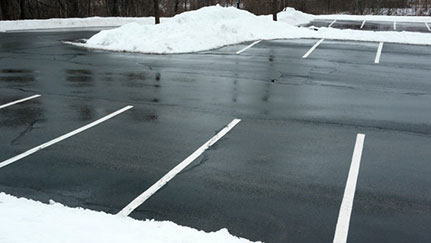It’s not enough to only consider the hazards that are known. There are also hazards that should be known. Nationwide Loss Control Services provides extraordinary care to people, places and things by helping our customers understand their exposures and provide “reasonable care” solutions.

As a business owner, there is a duty you owe to the people that visit your business, whether they are a customer, vendor or a supplier. The duty you owe is “reasonable care” – to take the appropriate steps to protect them from harm. “Reasonable Care” can be fully defined as the degree of caution and concern for the safety of himself/herself and others an ordinarily prudent and rational person would use in the circumstances. This is a subjective test of determining if a person is negligent, meaning he/she did not exercise reasonable care.1
Here are some examples of reasonable care that are seen on a regular basis:
- Drivers: Employers must take “reasonable care” in who they let operate their vehicles, based on their qualifications and training. It would not be reasonable for an employer to allow a person with a suspended license or multiple violations/accidents to operate a motor vehicle.
- Hiring: Employers must take “reasonable care” in hiring the right employees for the job and the tasks involved for the position. For example, it would not be reasonable for a residential electrical contractor to allow an employee with criminal history to work in customers’ homes, or to send an employee without proper training/experience/qualification on a job. This can also apply to subcontractors.
- Premises Liability: The owner and/or tenant of property has a general duty of care to remove known dangers to visitors or guests. A reasonable prudent person would be aware that a heaved section of sidewalk could create a trip hazard, or a wet floor/icy sidewalk creates a slip hazard. This can also be extended to criminal activity in the area. What controls would be reasonable for an apartment complex to provide for the personal safety of their tenants?
- Property of Others: A reasonable person who operates an auto repair facility would not leave their customers’ keys in the vehicle, or leave customer vehicles in an area prone to vandalism.
- Products Manufactured: Is the product dangerous? A manufacturer must take reasonable prudent steps to mitigate hazards. They must provide adequate instructions and/or warnings for product handling/use, and adequately train their sales force.
It’s not enough to only consider the hazards that are known. There are also hazards that should be known. It’s not reasonable to only clean up known spilled liquid on a floor. A reasonable person would regularly inspect the floors to make sure they are clean and dry. (As a side note, this is why sweep/mop logs or snow removal logs are important, so you, the business owner can document this effort.) How often should floors be checked? There is no singular answer. A public restroom with frequent use will require a higher frequency of checks vs. a restroom that rarely gets used. This could also be impacted by other variables, like weather. The standard is what a reasonable person would do.
One of the many ways Nationwide Loss Control Services provides extraordinary care to people, places and things is by helping our customers understand their exposures and provide “reasonable care” solutions. For more information, contact Nationwide Loss Control Services at 866-808-2101 or lcs@nationwide.com.
[1] https://dictionary.law.com/Default.aspx?selected=1730

